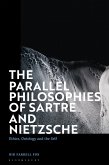In Philosophies of Gratitude, Ashraf H. A. Rushdy explores gratitude as a philosophical concept. The first half of the book traces its significance in fundamental Western moral philosophy and notions of ethics, specifically examining key historical moments and figures in classical antiquity, the early modern era, and the Enlightenment. In the second half of the book, Rushdy focuses on contemporary meanings of gratitude as a sentiment, action, and disposition: how we feel grateful, act grateful, and cultivate grateful being. He identifies these three forms of gratitude to discern various roles our emotions play in our ethical responses to the world around us. Rushdy then discusses how ingratitude, instead of indicating a moral failure, can also act as an important principle and ethical stand against injustice. Rushdy asserts that if we practice gratitude as a moral recognition of the other, then that gratitude varies alongside the different kinds of benefactors who receive it, ranging from the person who provides an expected service or gift, to the divine or natural sources whom we may credit with our very existence. By arguing for the necessity of analyzing gratitude as a philosophical concept, Rushdy reminds us of our capacity and appreciation for gratitude simply as an acknowledgment and acceptance of our humble dependency on and connectedness with our families, friends, communities, environments, and universe.
Dieser Download kann aus rechtlichen Gründen nur mit Rechnungsadresse in A, B, BG, CY, CZ, D, DK, EW, E, FIN, F, GR, HR, H, IRL, I, LT, L, LR, M, NL, PL, P, R, S, SLO, SK ausgeliefert werden.









